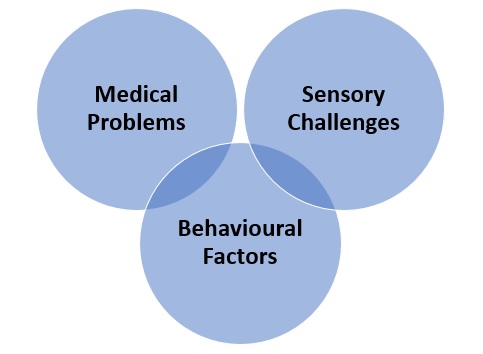
Fecal Smearing is also known as scatolia in the medical literature. Quite surprisingly, it is common among children as well as adults. We all know that toilet problems are not unusual in families with an autistic kid. Sometimes, kids refuse to go potty and holding it in until it becomes a problem. This is troublesome enough.
Fecal Smearing is one of the most distressing behaviors reported by parents of autistic kids. Usually, it occurs among kids with growing delays or post-traumatic pressure. It also means that the child may not be able to express the reason for the behavior. It is an upsetting behavior because of the smell, mess, and unhygienic condition.
The condition can cause loneliness. Eventually, the family will be unwilling and fearful to go outside, siblings will be reluctant to invite their friends over and so on. Unfortunately, there is very little research that demonstrates how common this concern is with autistic children and other related special needs.
What Is Fecal Smearing?
Needless to say, toilet training is a common challenge among parents of kids with autism, few people discuss the smearing of feces. This has been described as one of the most common bowels correlated to the problem behaviors in autism. There are numerous reasons fecal smearing may happen to a child.
The condition covers a variety of behaviors such as:
Smearing can be both expressively and bodily draining for parents as well as caregivers.
Basically, research shows three sets of variables that may contribute to fecal smearing behavior:

Furthermore, some research also claimed that gender, occurrence of intellectual special needs, gastrointestinal signs, and comorbid psychopathology are important predictors of toileting problems.
Some medical problems that may happen in autism or for a child in general. Some sensory challenges may include:
Fecal smearing is considered a behaviour and it has a meaning. Behavior factors are but one prime set of variables that play a role in fecal smearing.
Helpful Ways To Reduce Fecal Smearing
Here are some helpful tips to lessen fecal smearing:
We understand that parents who fight with their child fecal smearing, it can be terrifying, frustrating, and confusing. Consulting with experts like a doctor, a psychologist, an occupational therapist or a behavior therapist can be a huge support. The Master of Arts in Education with Special Educational Needs program is something that help to navigate and understand various aspects of special education.
Remember you are not alone…
Get In Touch
UK – Registered OfficeAsian College Of Teachers Ltd (UK)
27, Old Gloucester Street, London – WC1N 3AX, UK
UK Toll Free: 0-808-189-1203
www.asiancollegeofteachers.co.uk
All SEN Courses are designed, developed and created by Asian College of Teachers Ltd, United Kingdom. These courses are certified by CPD Certification Service UK and endorsed by NCC Education, UK, and Short Courses from CACHE, UK through Laser Learning UK.
Asian College of Teachers (ACT) undertakes a continuous review of its teacher training courses to ensure imparting high quality education. However, there might be circumstances outside of ACT’s control which might affect its stakeholders like if you are planning to teach in a different country, applying for a teaching license, pursuing higher studies or trying to get the certificate approved by the Ministry of Education (MoE) of a particular country then you can do so with the certificate issued by Asian College of Teachers (ACT). However, each country’s Ministry of Education (MoE) or educational bodies set certain standards that are indispensable for the pursuit of higher studies or teaching in schools in that country. So it can be a possibility that you may be able to use the certificate for higher studies or teaching purposes in one country and not in another. Therefore, we strongly recommend that you investigate thoroughly and check with the relevant authorities regarding the acceptance of the certificate issued by us before you enrol on a particular course. ACT strives to offer high-quality education and its certificates can be valuable for various purposes internationally, but still it is crucial for individuals to verify the specific recognition of the certificate in the country they intend to use it, especially for formal education or professional licensing purposes. This approach ensures that the stakeholders make informed decisions regarding their educational and career paths.
© 2025 Asian College of Teachers. All Rights Reserved. Asian College Of Teachers is a trading brand of TTA Training Pvt. Ltd (India) - CIN U80902WB2016PTC215839, Asia Teachers Training Co., Ltd (Thailand) - Registration No. 0105558193360, Asian College Of Teachers Ltd (UK) - Company Number 9939942 & Asian College Of Teachers LLC, (USA) - Federal Tax Identification Number 30-1261596
Designed by kreativewebtech